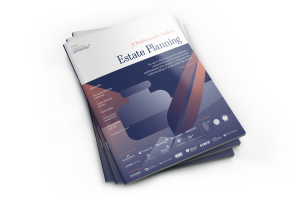Estate planning is becoming more of a priority for financial advisers, accountants and solicitors. The government’s IHT receipts reached a staggering £5.2bn in 2017/18 – and have increased year on year since 2009/10. This area is becoming a concern, even for people who never envisaged having an IHT liability. House prices, especially in London and the South East, have risen exponentially over the past two decades. According to Zoopla, there are nearly 770,000 UK residential properties worth £1m or more. Even with the introduction of the residence nil rate band (RNRB) in April 2017, a significant number of estates will still be liable for IHT.
Because of this, professionals need to be aware of the common instances where an estate plan may be needed.
Below are some of the key indicators that your client needs an estate plan:
They don’t have a Will
If your client has no Will, the chances are, they have not even started planning for their death and beyond. This could apply to a significant proportion of the client base of legal
and accountancy firms as research has shown that just four in ten over-55s have an up-to-date and valid Will.
After a major life event
When major life events happen, many people are prompted to evaluate their lives and make or change plans for the future. A birth or wedding, for example, might modify inheritance intentions.
Acquisition of a large asset
The acquisition of large assets, like a house, particularly in later life, brings up questions around the RNRB, any tapering away of the relief and how that affects other assets the client is looking to transfer on their death.
They need a cash lump sum
There may be occasions when a client seeks a lump sum for business or personal reasons. The client will need to decide whether to take a pension drawdown or take the funds from another source, as well as how to replenish them, all with the most beneficial tax consequences.
They have fallen ill
It is an unfortunate reality that there will be times when clients become ill. If the illness is terminal or likely to limit life expectancy, the IHT status of gifts could be affected and more effective IHT mitigation might be found elsewhere.
Your Ultimate Guide to Estate Planning
 So that professionals can fully understand the estate planning landscape, Intelligent Partnership has released the first edition of A Professional’s Guide to Estate Planning.
So that professionals can fully understand the estate planning landscape, Intelligent Partnership has released the first edition of A Professional’s Guide to Estate Planning.
This is a comprehensive guide that covers the different estate planning options available, as well as using illustrative case studies, and straightforward advice on developing professional relationships with financial planners and advisers.
Readers are also eligible for 4 hours of CDP upon completion of the guide.
Download a free copy of the guide here.
